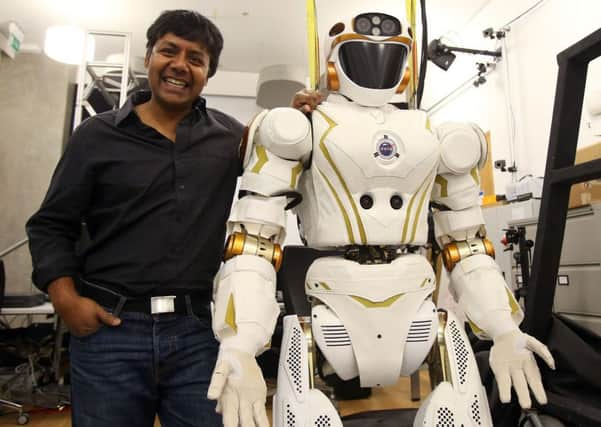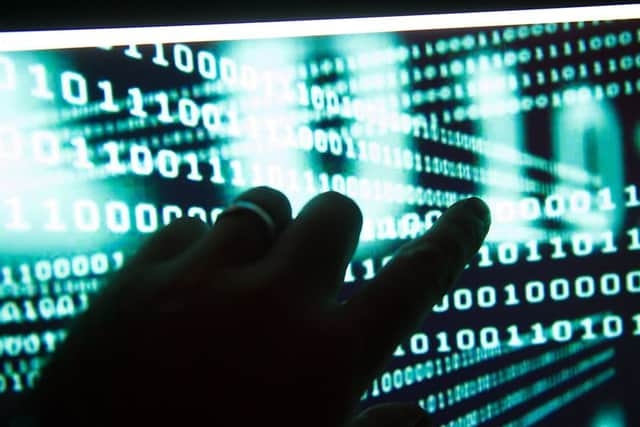6 Jobs of the future as technology changes the economy


Our reliance on technology, and new innovations are just some of the reasons why top economists designated 2016 as a tipping point year for technological advancement and the impact it can have.
A recent report by Sodexo estimates that as many as two million jobs will be created by robots in the next eight years.
Advertisement
Hide AdAdvertisement
Hide AdOther reports, however, estimate that twice as many jobs could be lost by advances in automation.


But there is so much more to future jobs than just robots – here are some of the careers that the next generation could find themselves in.
Blockchain Banker
The ‘Blockchain’ is the technology that makes Bitcoin work. While that online currency might seem like a fringe pursuit, many big hitters in finance are taking it seriously.
Professor Mihaela Ulieru, of Carleton University in Canada, says that banking could embrace the Blockchain technology and save an estimated $20bn a year in transaction fees and other overheads by 2022.


Blockchain, that makes theft much harder and can effectively negate the need for intermediaries in monetary transactions, will need workers of the future to be effective coders, with expertise in finance, maths, and even cryptography some of the essential skills needed.
Robot Maintenance Officer
It might seem the most obvious, but even futurologists and economists bleakly warning about the damage that could be wrought to jobs by robots concede this would be an important role.
Appirio, an IT consultancy, reasons that blue collar workers, whose factory or other industrial roles could be taken by robots, might still be involved in the process.
Robots need as much maintenance as other machines, and with artificial intelligence a factor, there could be more to fixing a robot than just re-wiring.
Personal Brand adviser
Advertisement
Hide AdAdvertisement
Hide AdYou would be forgiven for thinking that this job already exists. After all, what are PR professionals and publicists?
But these future jobs aren’t just for the big stars of today. They are for the average employee of a decade from now.
Jeanne Meister, of Forbes, revealed that many top employers are now urging their workers to focus on their personal brand.
That could be anything from your Klout score to your contacts on Linkedin. But as your social impact becomes as important as your qualifications, experts think an entire industry could spring up to focus on personal brands in the future.
Biocomputer Technician
Like a lot of future technologies, the phrase ‘nanosenser’ sounds like something from near-future science fiction.
But Nano-technology is a burgeoning industry even in the present. As the name suggests, nano-technology is all about using the smallest amount of material (organic or otherwise) that can still retain information.
Javier Garcia-Martinez of the University of Alicante, is the foremost expert on the Internet of Nanothings, an envisaged reality where tiny sensors in our bodies and elsewhere are interconnected.
In terms of bio-computers, Prof Garcia-Martinex thinks we are a while away from the advances in nano-technology that would allow the crucial improvements in detecting illness and even treating it in humans.
Advertisement
Hide AdAdvertisement
Hide AdBut with tests already starting on using nanosenser in organisms such as plants, working with this technology could be a crucial job in the future.
Optogeneticist
An idea that was only hypothetically theorised around the late 1990s and is already being tested on lab rats – Optogenetics has developed at an extraordinary pace in scientific terms.
Put at its most basic form, the idea of Optogenetics is to use visible light to control or even fundamentally alter cells in the brain, usually neurons.
As effectively the most complex computer in nature, the human brain can also short circuit, and breakthroughs in treating conditions that affect the brain are a top priority for scientists confronted with an ageing populations.
Nayef Al-Rodhan of Oxford University, says that the invention of optogenetics has greatly increased the speed of progress in brain science.
Doctors and researchers of the future could be using this incredible breakthrough to help treat everything from Parkinson’s to depression.
Self-driving car designer
Self-driving cars, or even flying cars, are seen as the sign that we are living in the future.
While the latter is still many years away, the former is already become a much-discussed development among both technological companies and transit experts.
Advertisement
Hide AdAdvertisement
Hide AdThe legal problems are arguably far more obstructive than the technological advances needed to make autonomous cars a reality.
Bernard Meyerson, senior VP at IBM, made an impassioned defence of self-driving cars at the World Economic Forum in Davos last year.
He noted that in America alone, 30,000 people are killed as a result of traffic collisions every other year. The knock-on costs to healthcare, insurance, and lost days of economic productivity are almost immeasurable.
Software can go wrong too, Meyerson said, but with so many accidents coming as a result of human error, our brightest and best could find themselves ironing out the wrinkles of a technology that could genuinely transform society.
Will the next Bill Gates ensure that rather than a computer in every home, there’s a self-driving car in every driveway?